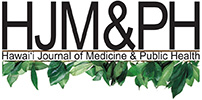
Independent Evaluations
Evidence Based Research And StudiesWe have invested in four independent evaluations and one Cost/Benefit Analysis. An evidence-based study, conducted by Lorrin Pang MD, Maui District Health Officer for the State of Hawai‘i, was published in the November 2013 issue of the “Hawaii Journal of Medicine and Public Health”. Dr Pang states that “the efficacy of the Move With Balance program to prevent falls is about 66%”.
November 4, 2016
Dr. Lorrin Pang and Kristin Mills from the Maui District Health Office have written a Cost Benefit Analysis of Move With Balance®. It is currently being submitted for publication. It will appear in this space soon.
October, 2016
Evaluation of Move With Balance® with Music at Kaunoa Senior Center by Kristin Mills from the Maui District Health Office. You can read more about the program and evaluation here: move-with-balance-with-music-paper
June 4, 2012
An Exercise Program to Prevent Falls in Institutionalized Elderly with Cognitive Deficits: A Crossover Pilot Study
Performed by Dr. Lorrin Pang, Director of the Maui District Health Office.
 Move with Balance is now evidence-based!
Move with Balance is now evidence-based!
The efficacy of the Move With Balance program to prevent falls is about 66%. Full article is published in the Hawaii Journal of Medicine and Public Health November 2103. Read the in-depth article here.
August 4, 2009
Evaluation requested by The Injury Prevention and Control Program of the Hawai‘i State Department of Health.
Evaluation performed by Dr. Lorrin Pang, Director of the Maui District Health Office. The following is a summary.
Title: The Giving Back® Fall Prevention Project (GBFPP) [now called Move With Balance®] improves lower and upper body strength, aerobic endurance, lower and upper body flexibility, agility, and dynamic balance in Older Adults.
The Study: The Giving Back® Fall Prevention Project was modified and piloted in elderly who attend a senior center on Maui. The Hawai‘i Dept of Health’s Maui office was asked to evaluate the program as close as possible to a cost- benefit format.
While there is currently no efficacy data (health cost aversion) for GBFPP, another exercise program for elderly, Enhanced Fitness, shows a 20 percent reduction in medical costs for participants who meet a minimum criterion of attendance. Using standardized fitness tests as a surrogate
We assumed that the comparability of fitness markers imply similar averted health costs. Using the observed 76 percent attendance rate and the annual program cost of $28,650 for 38 participants at 5 programs, the annual investment to return ratio was 1:3.4. The most notable findings were:
Increases in the ability of participants to move from sitting to standing than before GBFPP.
Increases in the ability of participants to march in place raising the knees to a required height than before GBFPP.
Improvements in the ability to stretch and reach the toes.
Improvement in ability to reach and touch finger tips behind the back.
Improvement in the ability to do bicep curls than before GBFPP.
Improvement in the ability to get up from a seated position, walk, turn and return to start.
The Giving Back® Fall Prevention Project was implemented by Giving Back, a nonprofit organization on Maui whose vision is unite the strengths of trained elder mentors and frail elders to improve each other’s strength, flexibility, endurance, balance, coordination, self-esteem, self- efficacy, and emotional well-being. GBFPP was designed specifically to improve physical well- being and cognitive functioning among our elders and to enhance their independence and self- sufficiency in the Maui community
May 30, 2008
The Giving Back® Fall Prevention Project (GBFPP)
Performed by Carol S. White, RN, over 40 years’ experience, 25 of these working in community health and long term care; University of Hawai‘i Maui Campus Nursing Faculty since 2002; administrative level nurse in community health; evaluates programs and is responsible for CQI (continuing quality improvement) of patient simulator program.
Title: The Giving Back® Fall Prevention Project (GBFPP) Improves Balance® in Sitting, Standing and Walking Activities of Older Adults and also Demonstrates Overall Improved Mental, Physical and Emotional Well-being.
The Study: The Giving Back® Fall Prevention Project [subsequently renamed Move With Balance®], which was recently held at the Kahului Union Church, has demonstrated improvement in the balance activities required for safer sitting, standing, and walking activities of the participant kupuna (Hawaiian word for elders). The evaluation utilized evidence based research methodology. The findings also noted that kupuna reported a reduction in stress and tension and an overall improvement in their mental, physical and emotional well-being at the conclusion of each session.
The GBFPP involves pairing senior citizens with mentors previously trained in educational kinesiology/Brain Gym® and other integrative movements. The pairs in this group worked together on the exercises during weekly sessions over the course of ten weeks. The most notable findings were:
Significant increases in the ability of participants to move from sitting to standing without support or with less support than before GBFPP.
Significant increases in the ability of participants to walk using proper posture and needing to look down less than before GBFPP.
Improvements in the attention span/cognition of participants.
Satisfaction in the mutual engagement and socialization in the GBFPP experience expressed by participants and mentors.
The Giving Back® Fall Prevention Project was implemented by Giving Back®, a non-profit organization on Maui whose vision is to unite the strengths of senior citizens and trained mentors to improve each other’s self-esteem, self-efficacy, and emotional well-being. The Giving Back® Fall Prevention Project was designed specifically to improve physical well-being and cognitive function among our kupuna and to enhance their independence and self-sufficiency in the Maui community.